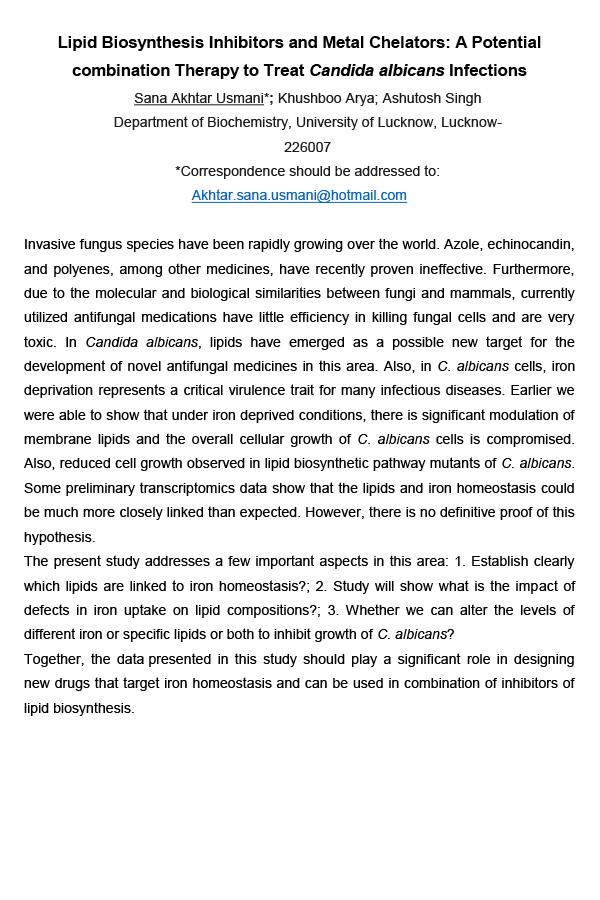Invasive fungus species have been rapidly growing over the world. Azole, echinocandin, and polyenes, among other medicines, have recently proven ineffective. Furthermore, due to the molecular and biological similarities between fungi and mammals, currently utilized antifungal medications have little efficiency in killing fungal cells and are very toxic. In Candida albicans, lipids have emerged as a possible new target for the development of novel antifungal medicines in this area. Also, in C. albicans cells, iron deprivation represents a critical virulence trait for many infectious diseases. Earlier we were able to show that under iron deprived conditions, there is significant modulation of membrane lipids and the overall cellular growth of C. albicans cells is compromised. Also, reduced cell growth observed in lipid biosynthetic pathway mutants of C. albicans. Some preliminary transcriptomics data show that the lipids and iron homeostasis could be much more closely linked than expected. However, there is no definitive proof of this hypothesis.
The present study addresses a few important aspects in this area: 1. Establish clearly which lipids are linked to iron homeostasis?; 2. Study will show what is the impact of defects in iron uptake on lipid compositions?; 3. Whether we can alter the levels of different iron or specific lipids or both to inhibit growth of C. albicans? Together, the data presented in this study should play a significant role in designing new drugs that target iron homeostasis and can be used in combination of inhibitors of lipid biosynthesis.
